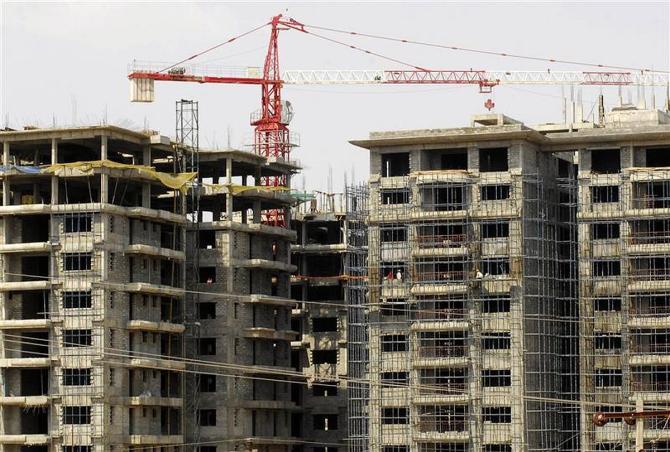Registering the agreement for sale remains the most reliable way for a homebuyer to secure their legal and financial interests.

The Maharashtra Real Estate Appellate Tribunal (MREAT) recently overturned a 2020 order of the Maharashtra Real Estate Regulatory Authority (MahaRERA) that denied relief to a homebuyer due to the absence of a registered agreement for sale.
The tribunal held that a detailed booking application could suffice as a valid substitute under Section 18 of the Real Estate (Regulation and Development) Act, 2016 (RERA).
Wider interpretation of Section 18
Section 18 of RERA allows an allottee to withdraw from a project and claim a refund with interest and compensation if the promoter fails to deliver possession or fulfil contractual obligations.
In the past, relief was typically granted only when a registered agreement for sale existed. Promoters have often cited its absence to deny claims.
"In the Stanley Patrick Saldanha v Lucina Land Development case, the MREAT clarified that the applicability of Section 18 is not limited to situations where a written agreement for sale exists. Any document evidencing a concluded arrangement, such as a detailed booking application, can suffice, provided it reflects the mutual understanding between the parties," says Soumya Banerjee, partner, AQUILAW.
Sale agreement remains vital
While the ruling offers flexibility, legal experts caution that a registered sale agreement remains crucial.
It secures the allottee's rights by detailing payment terms, construction milestones, and remedies in case of default.
"A registered agreement for sale becomes admissible as evidence in a court of law with ease. The developer can dispute the existence or terms of an unregistered document," says Heena Chheda, partner, Economic Laws Practice.
Amit Agarwal, CEO and co-founder, NoBroker, agrees.
"A sale agreement strengthens the buyer's claim to ownership and is necessary for resale or mortgage," he says.
Under Section 13 of the Act, promoters are barred from collecting more than 10 per cent of the total consideration for an apartment, plot, or building without first executing an agreement for sale.
An agreement for sale must be registered.
"If it is not registered, the agreement for sale cannot be taken in evidence," says Gauri Jagtap, partner, King Stubb & Kasiva, Advocates and Attorneys.
Risks of not having an agreement
Legal experts emphasise that registering the agreement for sale remains the most reliable way for a homebuyer to secure their legal and financial interests.
"A homebuyer may struggle to establish a binding contractual relationship with the developer, making it easier for the latter to engage in fraudulent practices, such as selling the same unit to multiple parties. If a dispute arises over the title, or if the developer defaults on delivery or construction milestones, the absence of a registered agreement can severely limit the homebuyer's legal remedies before a civil court," says Chheda.
Banerjee adds that the lack of formal documentation can create legal ambiguity, making it easier for the promoter to delay possession or deny liability.
Agarwal informs that banks may not release funds without a registered document.
The MREAT acknowledged that a detailed and mutually accepted booking application may suffice to invoke Section 18.
"However, this protection depends on the strength and clarity of the underlying documentation. Where the documentation is vague, incomplete, or silent on essential terms, the allottee may risk forfeiting advance payments and encounter significant hurdles in asserting their statutory rights," says Banerjee.
Regulatory breach
Booking without a registered agreement is widespread.
"Developers collect a booking amount along with a booking form or allotment letter. The agreement is usually executed after 10 per cent of the total cost is paid. And even then, not all developers insist on immediate registration unless the buyer requests it or the bank requires it for loan purposes," says Agarwal.
The Saldanha case highlighted this issue.
"Here, the promoter had accepted over 30 per cent of the flat's cost without executing a formal agreement, which was a clear violation of Section 13 of the Act," says Banerjee.
She notes that such delays allow developers to avoid early contractual obligations.
Redress if developer delays agreement
Section 13(1) prohibits promoters from demanding over 10 per cent without a registered agreement.
"Any demand beyond this limit, in the absence of such an agreement, constitutes a clear violation. In such cases, allottees should immediately stop further payments and call upon the promoter to execute and register the agreement. If the latter fails to comply, the allottee is entitled to file a complaint before the relevant RERA authority," says Banerjee.
Agarwal recommends exerting pressure on developers through legal notices.
Homebuyers may also seek redress under the Consumer Protection Act, 1986.
"Non-registration of a sale or conveyance deed amounts to deficiency of service under the RERA Act," says Jagtap.
Scrutinise the agreement
Buyers should verify the RERA registration number, project details, payment schedule, delivery timeline, and remedies in case of default.
"Check for any penalty clauses imposed on the homebuyer in case of breach," says Jagtap.
Buyers must keep a few points in mind.
"Get the sale agreement reviewed by a legal expert. Also, look out for hidden clauses favouring the builder. And watch out for confusion between carpet, built-up, and super built-up area," says Agarwal.
- Delay penalty: Compensation if builder delays possession
- Title assurance: Seller confirms title is clear, marketable, and free from encumbrances
- Default: Clause defines consequences if buyer or builder fails to meet obligations
- Defects: Builder must fix structural defects within 5 years
- Force majeure: Limits builder's excuse for possession delay to specific, time-bound natural calamities
- Dispute resolution: Defines mechanism (mediation/arbitration) and jurisdiction of courts
Source: NoBroker
Disclaimer: This article is meant for information purposes only. This article and information do not constitute a distribution, an endorsement, an investment advice, an offer to buy or sell or the solicitation of an offer to buy or sell any securities/schemes or any other financial products/investment products mentioned in this article to influence the opinion or behaviour of the investors/recipients.
Any use of the information/any investment and investment related decisions of the investors/recipients are at their sole discretion and risk. Any advice herein is made on a general basis and does not take into account the specific investment objectives of the specific person or group of persons. Opinions expressed herein are subject to change without notice.
Feature Presentation: Aslam Hunani/Rediff











